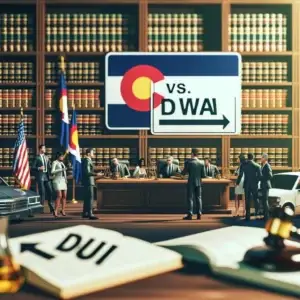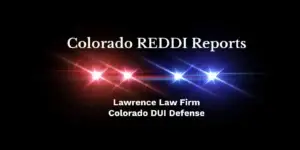Always speak with a Colorado Criminal Defense Attorney First.
From the start, it should be noted that law enforcement officers are not inherently bad. Police officers serve a valid and important role in society. They protect citizens and enforce rules and laws that keep society safe. However, it is always important to remember that they are not your friends.
A police officer has a job, and it is to enforce the law. To do that, they will question a defendant. Cops will want to come off as helpful, but it is just a job. They will not have your best interest in mind, and it is always important to speak with a criminal defense attorney.
There is no rush to speak with police. Most criminal defense attorneys will provide a free consultation to speak with you about your case. Our firm routinely speaks with people that are being investigated for criminal charges.
Don’t Speak with Police, Speak with a Colorado Defense Attorney
A basic principle of human nature is a desire to protect or defend themselves. This desire is problematic for criminal defendants for a variety of reasons. First, the average defendant is not equipped to deal with police.
That isn’t to say that they are not smart. However, defendants will likely be subject to heightened emotional pressure when approached by police. These emotions can come from the situation, a desire to protect themselves, or a desire to protect another party.
Regardless, the statements made by an emotional defendant will likely not be helpful. Police will say they are just trying to figure out what happened. Police are also humans, and they are subject to the same issues that any human would. This includes making assumptions and making conclusions without evidence.
Second, the police will typically not share the nature of their investigation with a defendant. This is an investigatory tactic used by police to see if a defendant will make statements or admissions that are consistent with a victim’s story. An innocent defendant could potentially provide information that supports false accusations.
For example, a victim could claim she was assaulted by a defendant at a party. A defendant that speaks with the police could say he was at the party but didn’t assault the victim. At the very least, the defendant is admitting to being at the party. This information, while not potentially damning, could be used against the defendant.
Third, a defendant is subject to the basic memory problems that any human has. The average human does not have a perfect memory. We do not remember every detail.
The same event witnessed by multiple people could be remembered differently by everyone. Inconsistencies between a victim and a defendant could be unhelpful to a defendant’s case.
Memory will also involve issues of bias. Bias is a product of human nature. Everyone is biased. Bias is a tool through which individuals see the world.
A person that thinks their significant other is cheating will see signs of infidelity. Political ideology will cause a person to interpret a statement in a certain way.
People that see a fight between a man and women will typically assume the man is the initial aggressor. Bias will cause people to interpret facts and things in a certain way. This will impact a defendant’s memory of the situation.
This bias will impact a defendant’s memory of the situation. Again, any inconsistency could be used against a defendant. The ultimate issues is that a defendant attempting to help themselves can and does lead to statements that are not helpful.
Always speak to a criminal lawyer prior to speaking with the police.
When do the Police have to Advise you of Miranda Warnings?
Everyone has heard the “reading of the rights”. You have a the right to remain silent and the right to an attorney. Anything you say, can and will be used against you in a court of law.
These are rights defined by the United States Supreme Court in Miranda v. Arizona.
The police do not have to read the Miranda warning upon contact. Your rights must be invoked upon a custodial interrogation.
Every police interaction does not equate to a police interrogation. A police interrogation happens when a reasonable person would believe they are not free to leave or refuse to answer questions. A general traffic stop for the purpose of investigation will not rise to the level of interrogation.
A court will look at a variety of factors to determine interrogation. These include, the level of force used by the policed, whether weapons were used, the tone of the police in questioning, the length, and the location of the interaction. A criminal attorney at a law firm would be able to speak with you about any violation of Miranda.
If you have questions, request a Free consultation
There is a sign in our office that says “Even a fish would not get caught if they kept their mouth shut”. It is always important to speak with an attorney that handles criminal cases prior to speaking with the police. This will help you to understand what you are potentially looking at and plan for how to proceed.
You need to speak with an attorney that understands criminal law and defense strategies. Our criminal trial attorneys routinely handled these types of cases. We understand how police look at criminal suspects.
Our firm routinely represents individuals accused of criminal offenses. We are open during regular business hours, but we will stay late or be available on weekends if necessary. Schedule a free consultation. Even if you are worried about how to afford an attorney, the consultation is free.
We are ready, willing and able to discuss and defend you against any criminal charge in Denver, Aurora, Arapahoe County, Adams County or any court in the State of Colorado.
Request a Consultation Today.






